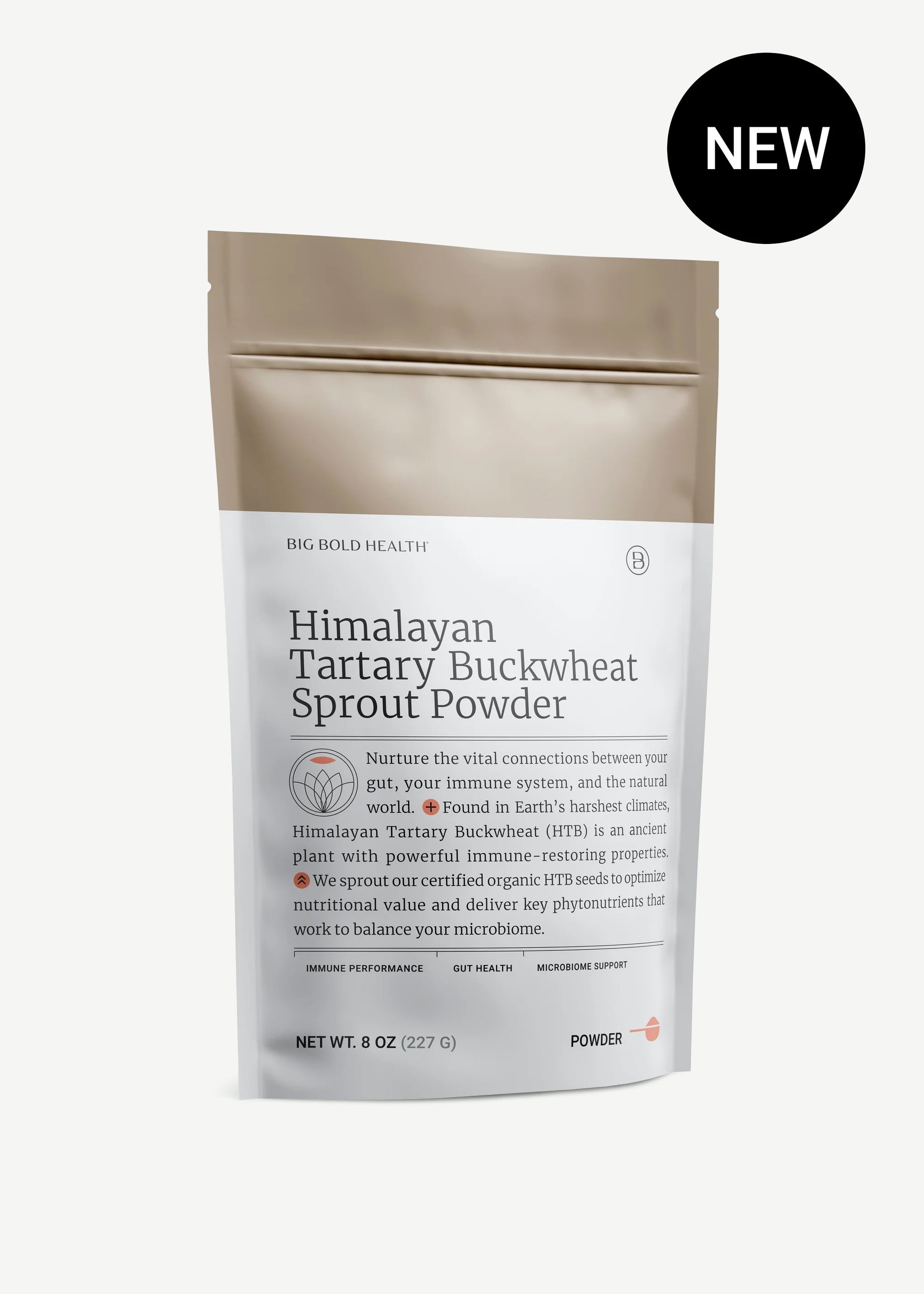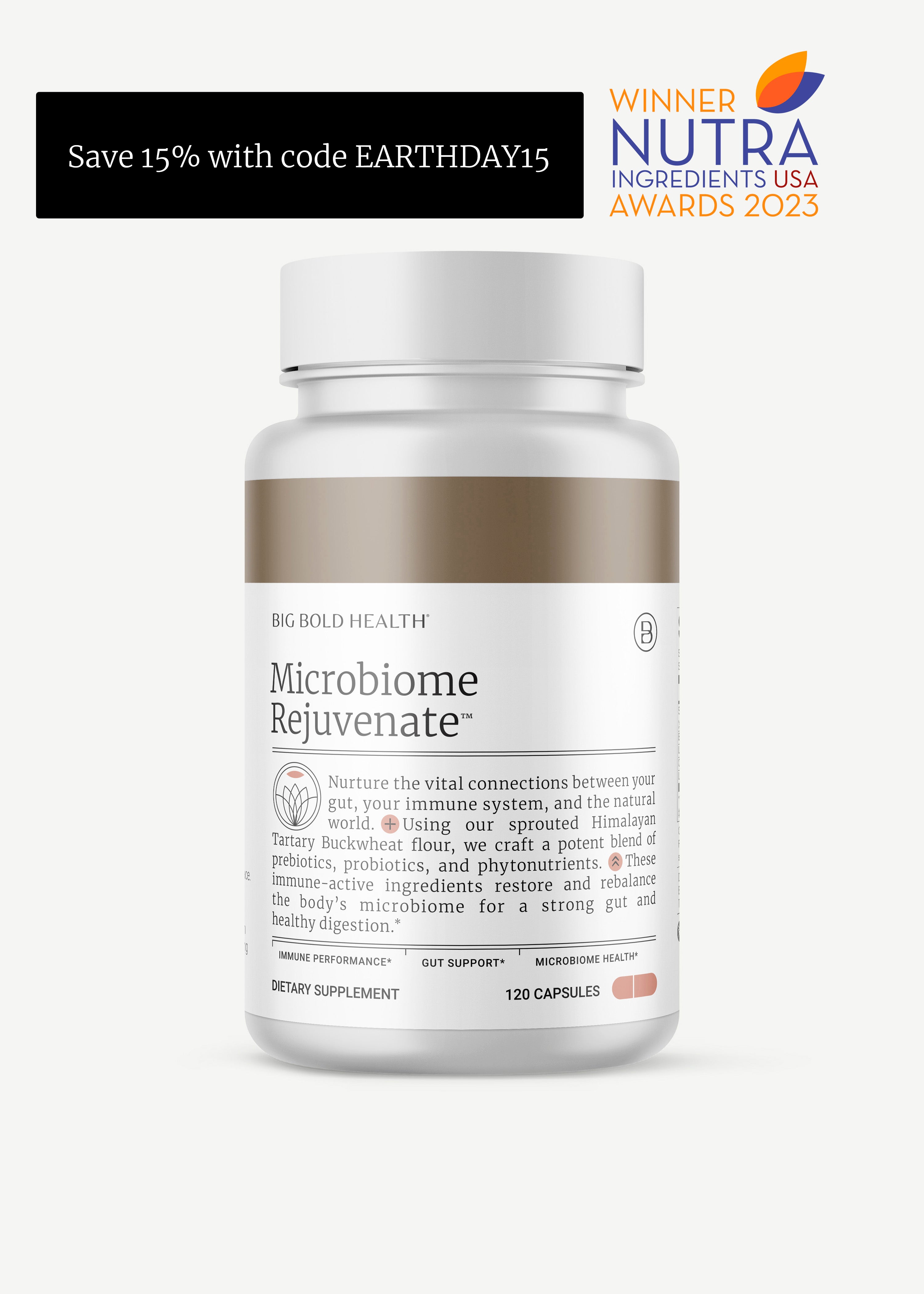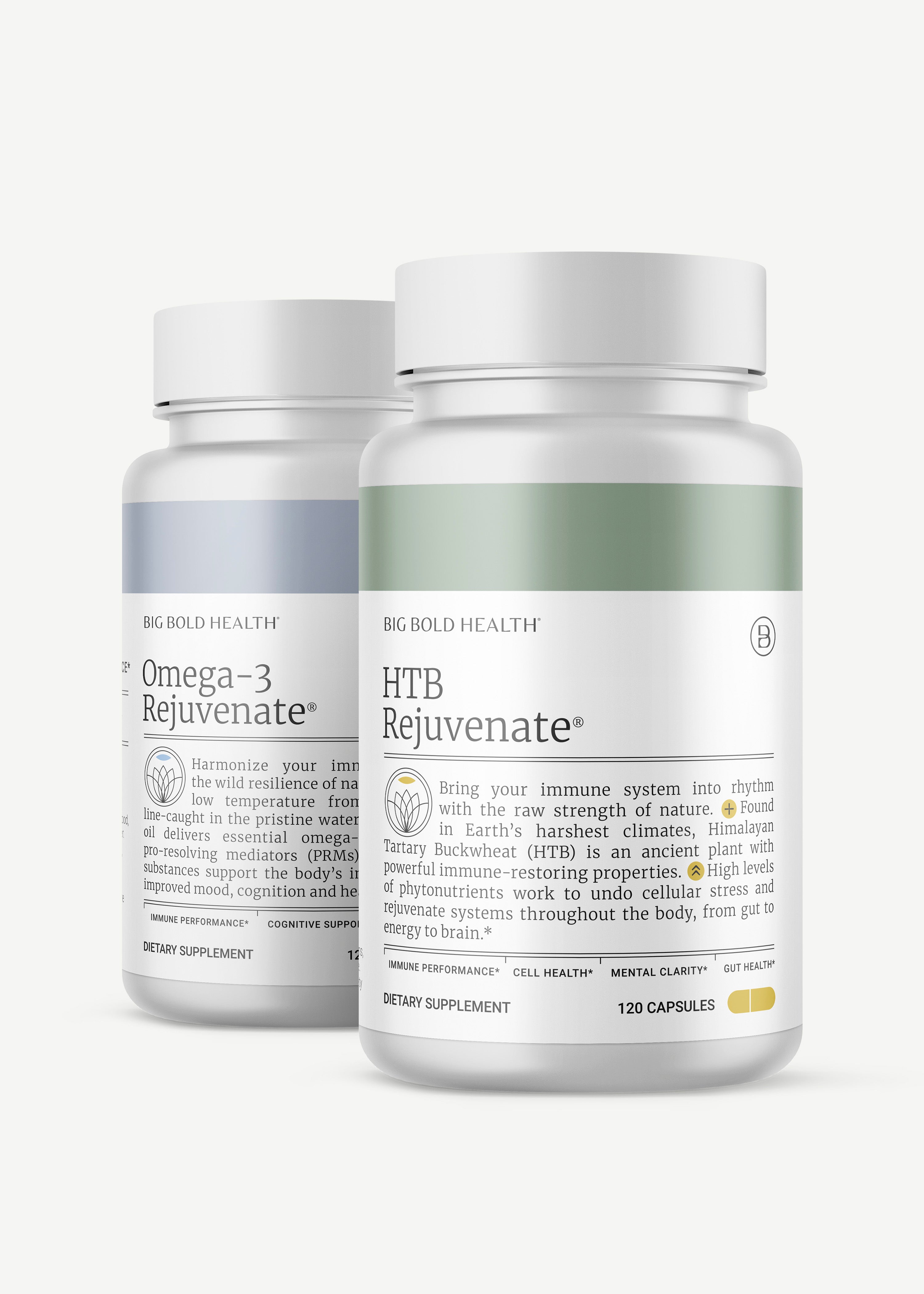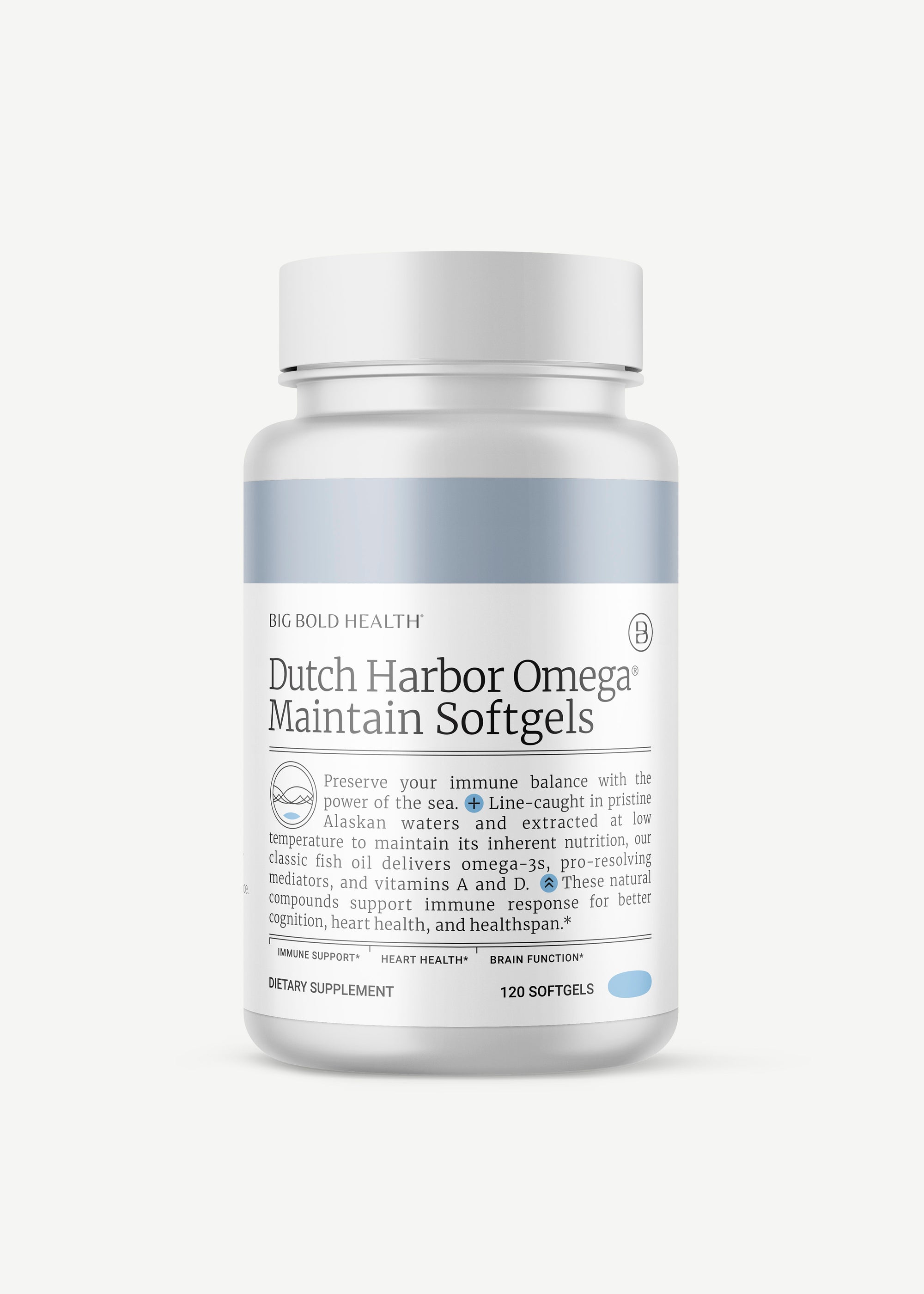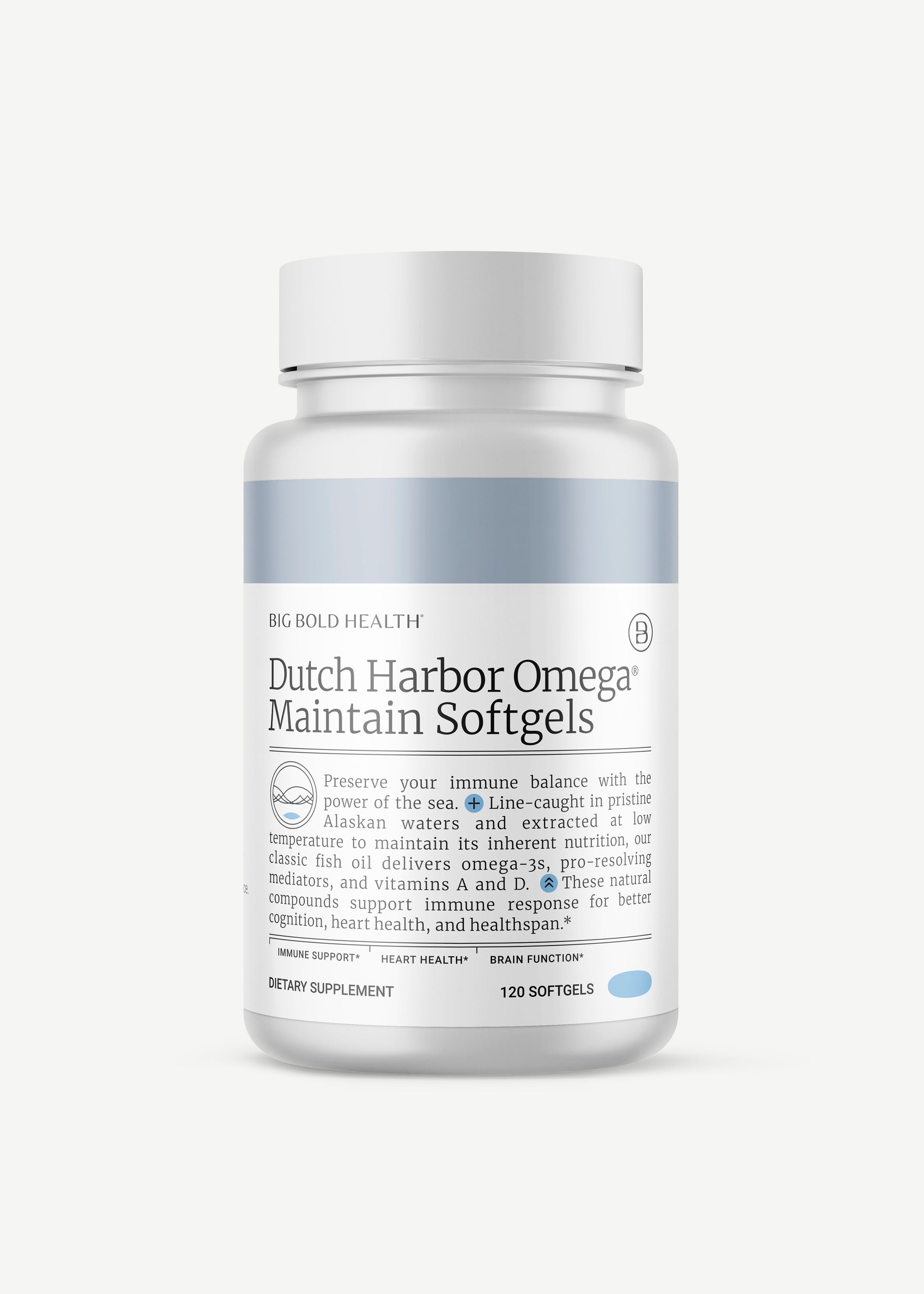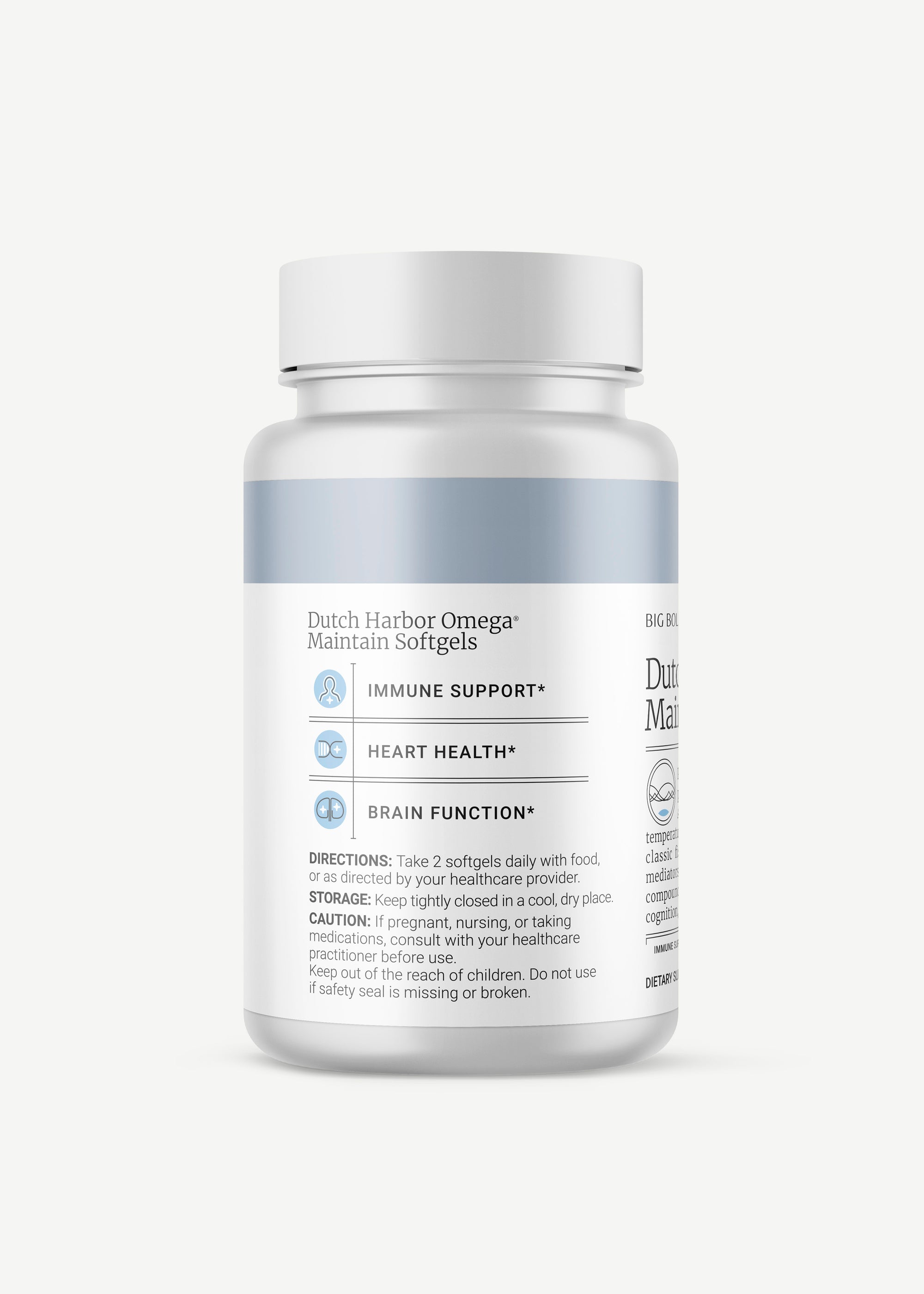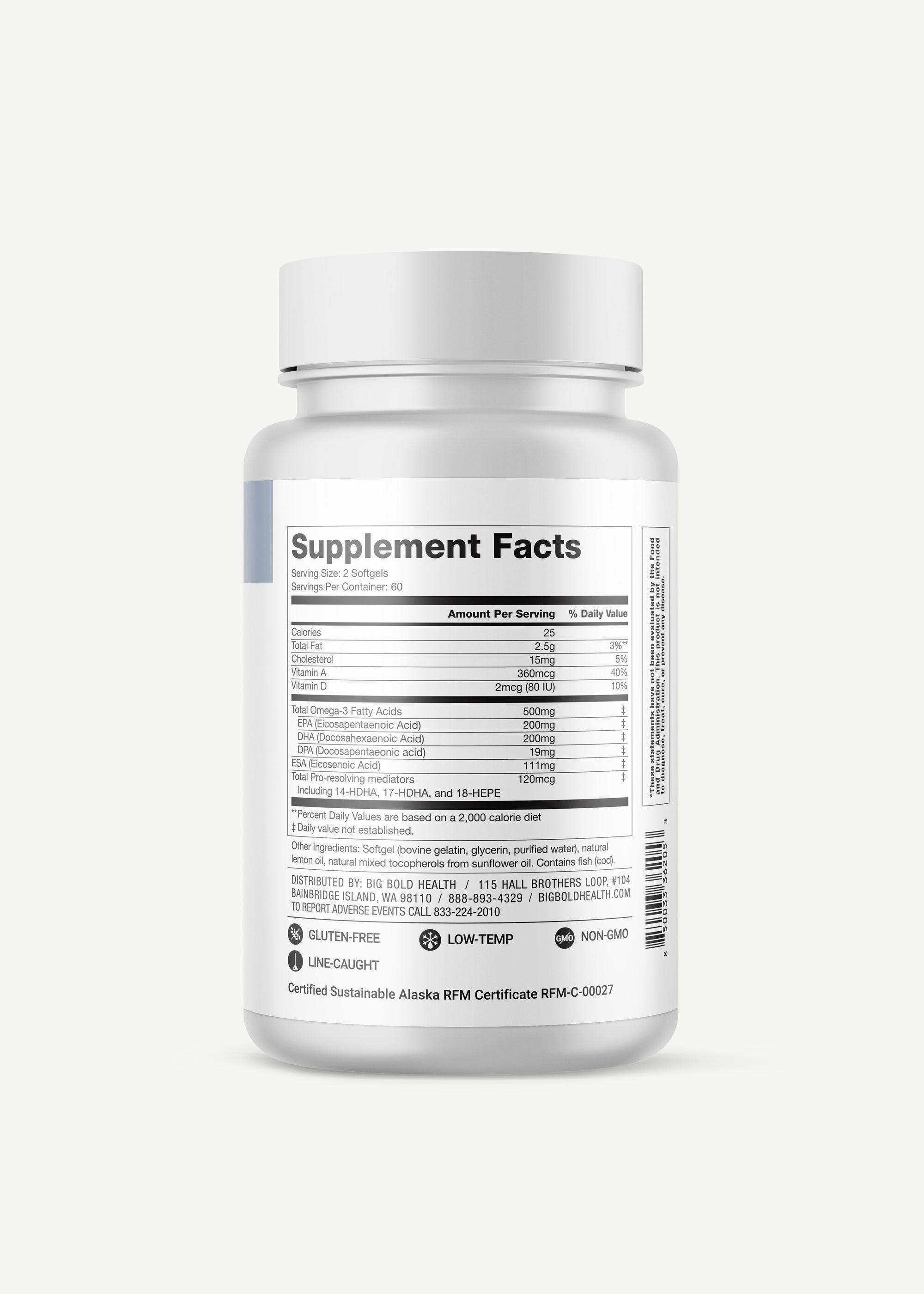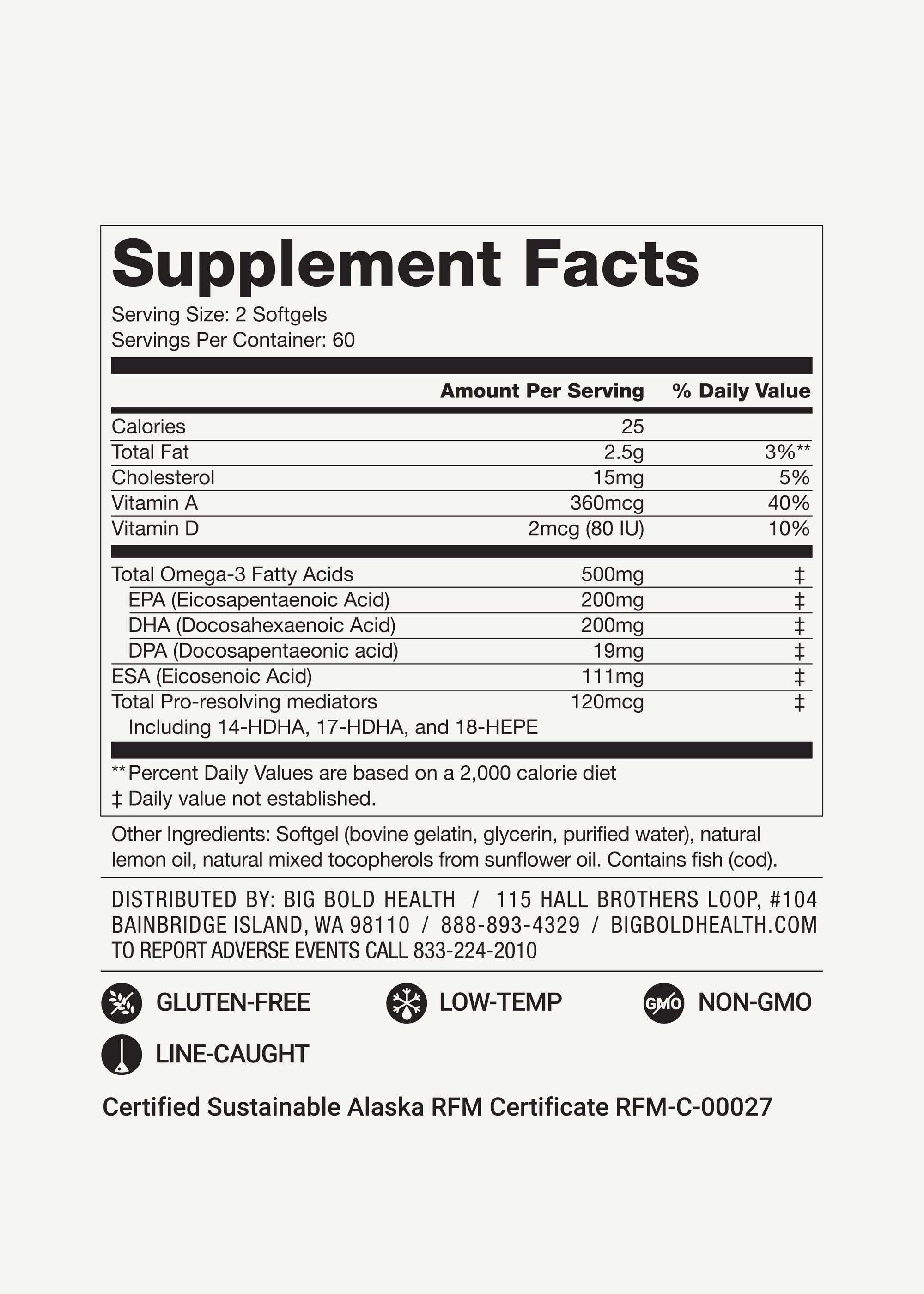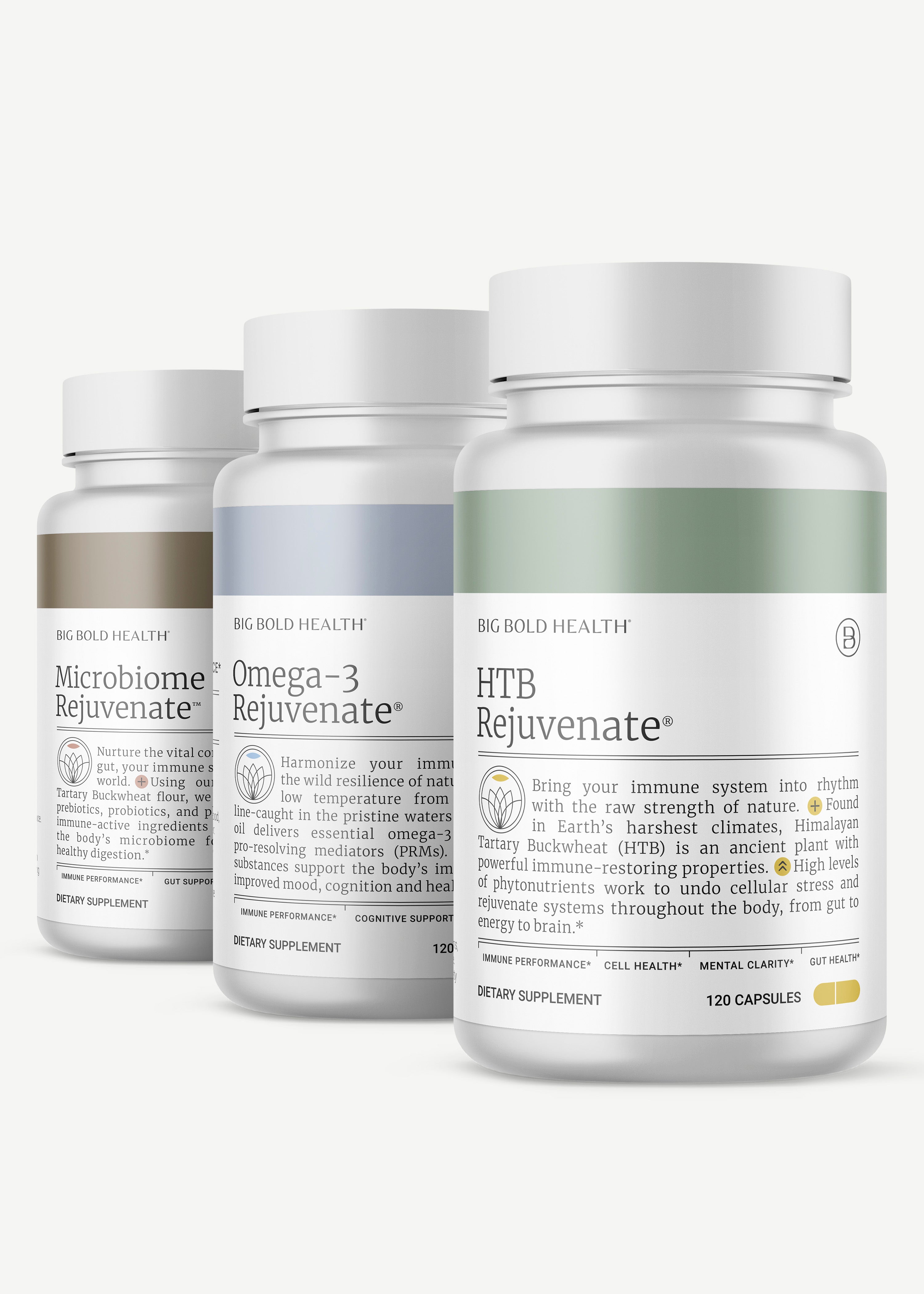Dutch Harbor Omega® Maintain Softgels
Preserve your immune balance with the power of the sea.
Line-caught in pristine Alaskan waters and extracted at low temperature to maintain its inherent nutrition, our classic fish oil delivers omega-3s, pro-resolving mediators (PRMs), and vitamins A and D. These natural compounds support immune response for better cognition, heart health, and healthspan.*
- More balanced immune response*
- Support for cognitive health*
- Support for heart & cardiovascular health*
- 2 month supply
$51.00
$60.00
Deliver Every 2 Months (Save 15%)
You can edit, skip, reschedule and cancel subscription anytime.
1
What is it?
How do I use it?
What are the health benefits?
Show me the science.
Key Ingredients
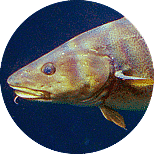




Our Sustainable Fishery in Dutch Harbor, Alaska


